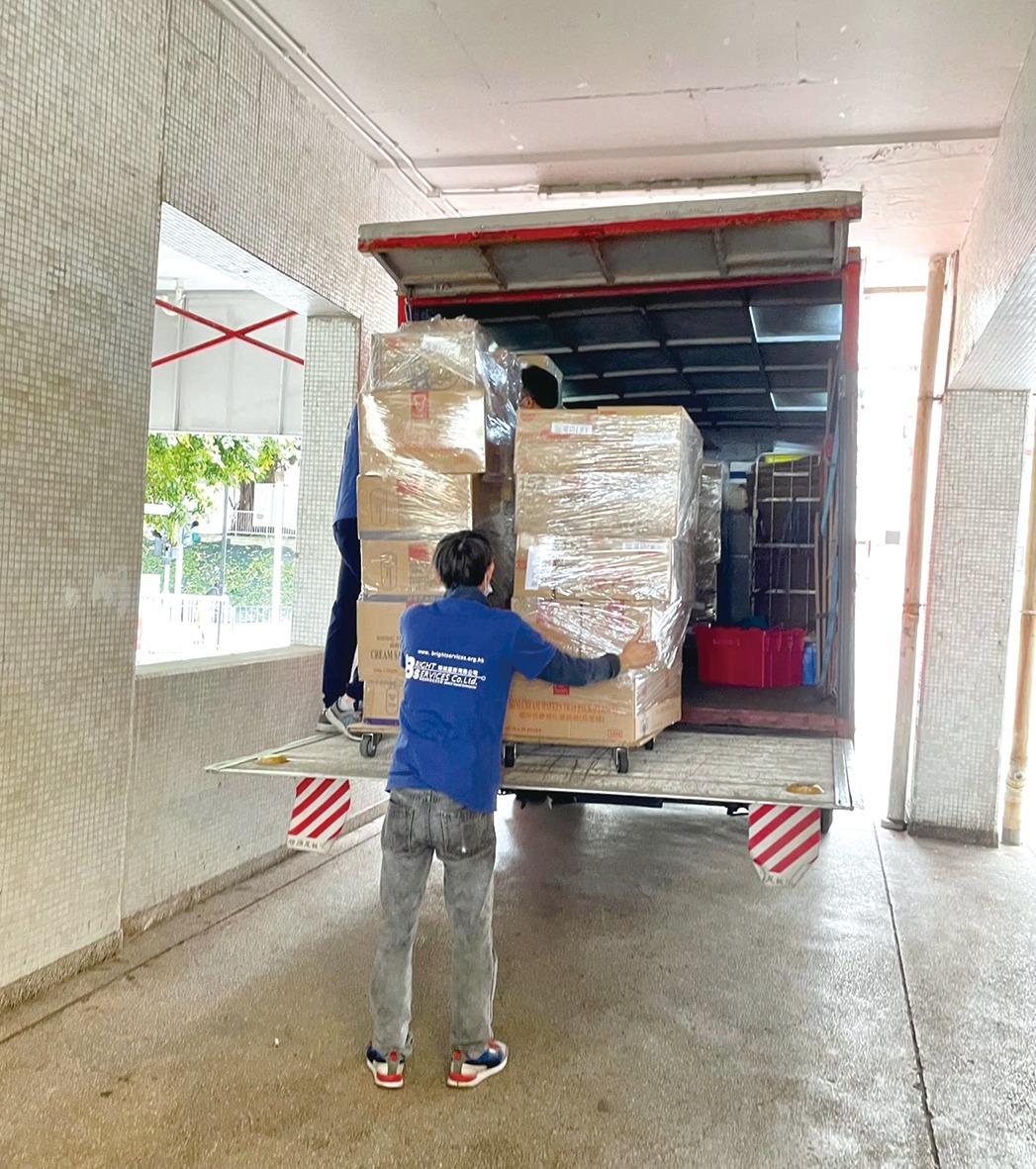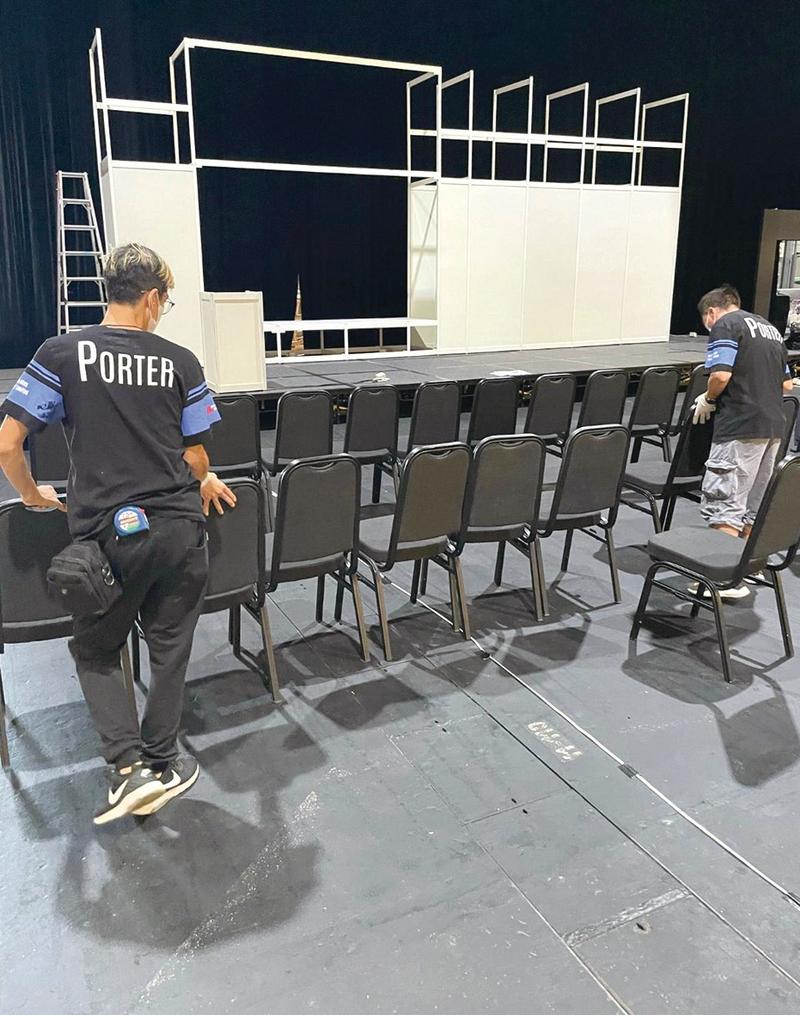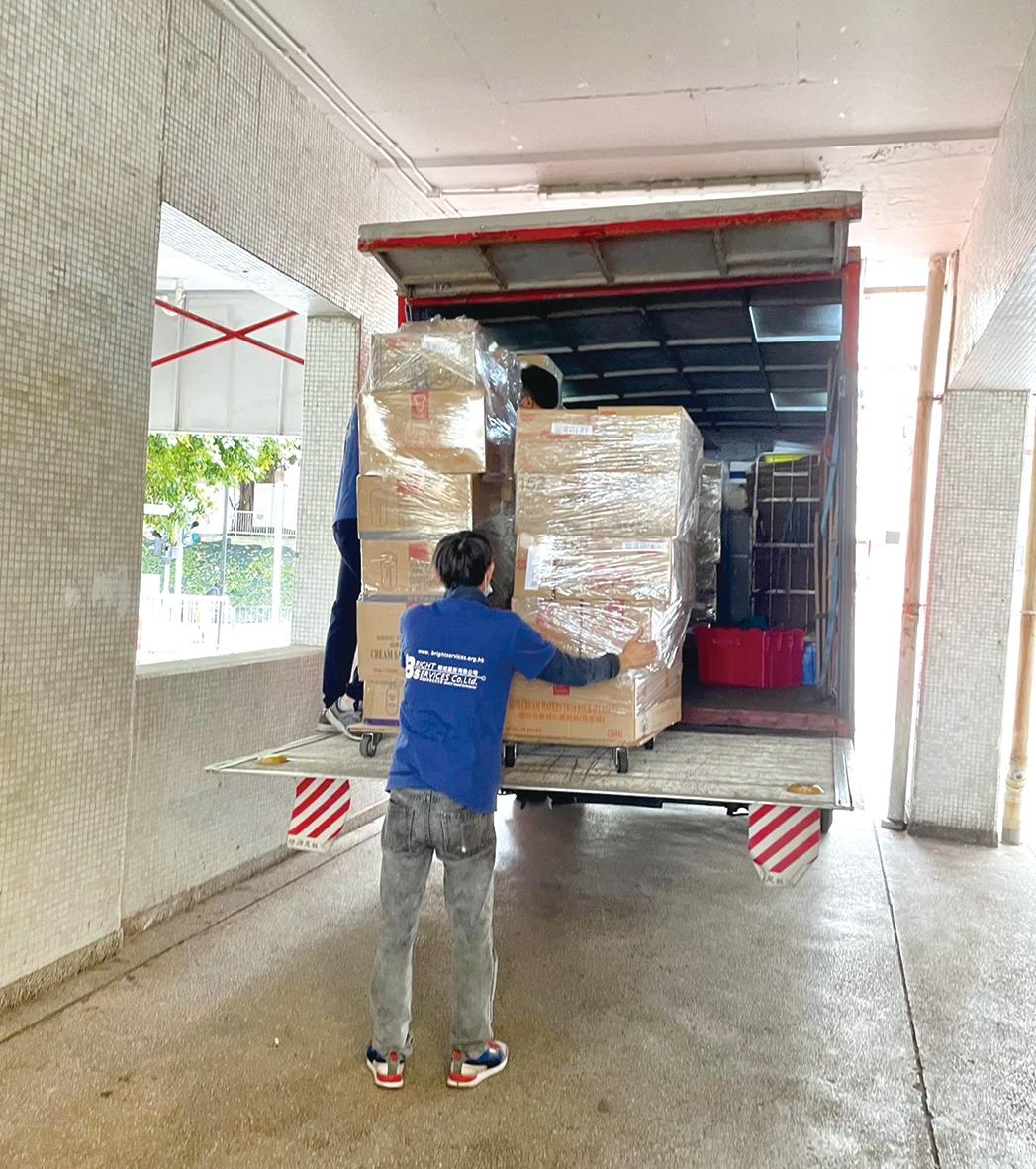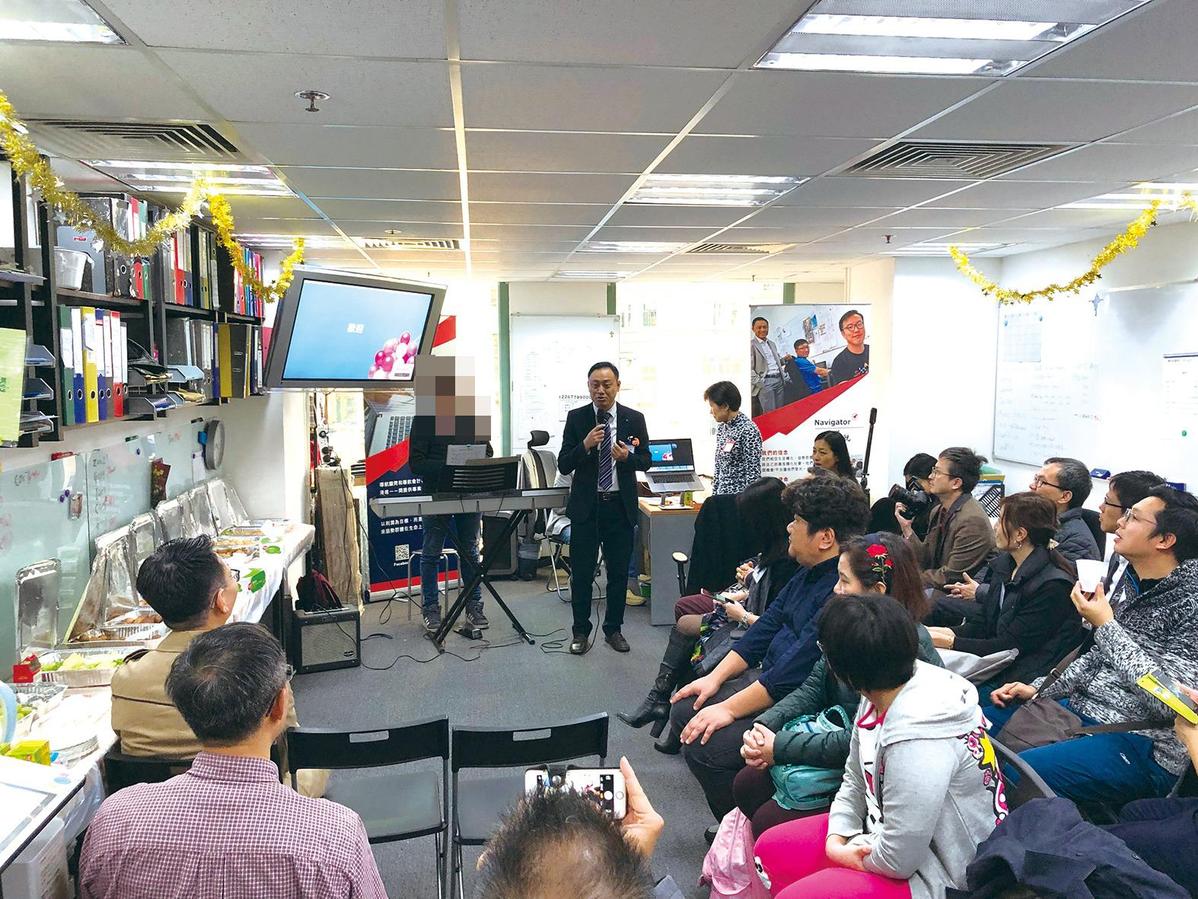Turning a new page

Former convicted offenders have found success and solace as they embark on the road of rehabilitation after being offered a chance to reform themselves. Oasis Hu reports from Hong Kong.

When Ah Cheung was arrested by the police in his mid-20s and put behind bars for three years for drug trafficking, he didn't expect his cellmates to work for him one day and regain their normal lives. As a rehabilitated person himself, Ah Cheung knew firsthand what a second chance would mean to a former law offender.
Ah Cheung, a 35-year-old former drug addict, resorted to using ketamine, commonly known as "K Zai" in Hong Kong, when he was 17. Because of his drug use, he was remarkably thin, standing 180 centimeters tall but weighing only 50 kilograms. Furthermore, his drug use had a significant impact on his bodily functions, making him frequently use the restroom. He eventually turned to peddling drugs to feed his costly habit.
Ah Cheung was released from prison in 2017 at the age of 30. He was still in his prime years then, but lacked the courage to look for a job. "Once out of prison, we find ourselves trapped in a lifelong 'prison of discrimination'," he laments.
Nearly all companies in Hong Kong would demand that a job applicant submit his or her criminal record, if one existed. The likelihood of being rejected was almost 100 percent if the answer was "yes".
Not only so, it would be almost impossible for Ah Cheung to pursue certain professions, such as law and finance, or join the civil service, with a criminal record. He would also be checked rigorously at Customs when he traveled outside Hong Kong.
But he was lucky - his mother gave him HK$30,000 ($3,832) which he used to start a drainage company called Wisdom Engineering in 2017.
Drainage is an industry that doesn't require an awful lot of special skills, and his clients are less likely to scrutinize his history. The business is also known to be physically demanding and unappealing to most people, making it easier for Ah Cheung to get off to a good start with fewer competitors in the market.
Ah Cheung worked tirelessly to keep his business running. He had to overcome his fear of thousands of cockroaches in underground tunnels at work. To take more orders, he had his shop operating 24/7, and was always prepared to answer urgent calls from customers late at night. Once, during a typhoon, he had to work for 60 hours without sleep. Before the COVID-19 pandemic struck, his company had raked in HK$20 million in two years.

All 10 of the company's employees, except Ah Cheung's wife, are rehabilitated individuals. Initially, he hired his rehabilitated former cellmates who had struggled to secure employment and turned to him for help. Other rehabilitated offenders also got in touch with Ah Cheung, while some charity groups recommended potential workers to him.
Ah Cheung was all too willing to offer them employment. "I'll never discriminate against them because I had been one of them. Moreover, some are very smart but only lacked an opportunity to prove themselves."
The offender-turned-proprietor knew better than anyone else how important such an opportunity is to them. He also understood that few would have the chance as he did to turn over a new leaf, with financial support from their families. After leaving prison, many rehabilitated people would lose contact with their loved ones or even face discrimination from family members. Without a steady job, they would often fall back into criminal activity and end up returning to jail.
Ah Cheung has tried his best to extend a helping hand. He provided a temporary place to stay for a homeless ex-convict employee, paid compensation for three bottles of wine worth more than HK$500,000 that an employee had stolen from a client, and continued to hire ex-offenders, although some failed to show up again after getting paid. He has employed more than 30 individuals with criminal records, a fifth of whom have successfully reintegrated into society and now live normal lives. Ah Cheung didn't give up even in times of distress, when his company went broke during the pandemic.
"If I can help just one out of 100, with a success rate of 1 percent, I would feel that's worth what I've done," he says.
The Hong Kong Correctional Services Department saw 13,246 offenders admitted to the city's penal institutions in 2022, including convicted persons, those on remand, and new detainees. The average daily inmate population at the city's correctional facilities was 7,613. About 7,000 individuals are released yearly from prison, with at least 100,000 having had a history of imprisonment.

Employment challenges
"Reemploying rehabilitated individuals benefits society in many ways," says Priscilla Ho Cheuk-yee, senior manager of SideBySide - a renowned nonprofit rehabilitation organization established in Hong Kong in 1957.
Ho says work helps these individuals cover their daily expenses, reduces the likelihood of financial crimes, and allows them to establish friendships and break free from criminal environments, thus helping to create a more stable society.
Hong Kong's recidivism rate for rehabilitated persons in 2020 stood at 23.3 percent - up from 20.9 percent in 2019.
Employing rehabilitated individuals can have a positive impact not only on the individual, but also on their families, particularly those with children, Ho says. With a steady job and benign social connections, rehabilitated people are less likely to have a negative impact on their children.
According to the CSD's funding program, the Hong Kong Special Administrative Region government spends about HK$55,000 monthly to support a prisoner in 2022, providing them with a safe living environment, adequate health care, a job and vocational training opportunities, drug rehabilitation assistance, community education, public engagement activities, etc.

In other words, by reintegrating former offenders into society, it could save the community tens of thousands of dollars. Instead of being a burden to society, they can create value and help boost the local economy by rejoining the workforce, says Thomas Lau Kam-tai, founder of Navigator Consultancy - the first and only company in Hong Kong that offers employment opportunities in the accounting sector to rehabilitated individuals.
In the past, even low-skilled jobs, such as cleaning, portering and catering, were hard for rehabilitated individuals to secure, but the situation has improved recently with the emergence of job websites that recruit freelancers, casual workers and contract workers, and offers side gigs. These websites do not strictly scrutinize personal applicants, making it easier for rehabilitated people to apply, Ho says.
However, temporary jobs are typically low-paying and unstable, which cannot provide stable income and help former offenders reintegrate into society, Ho says.
Those with criminal records often face barriers when registering for professional qualifications and are always rejected for specific professions, such as insurance, banking, directorship roles, law practice and professional accounting. Although many of them have successfully reentered the workforce, keeping their jobs may not be easy, Ho says.
Some companies lack a friendly environment for rehabilitated individuals, and their colleagues don't have an adequate understanding of their situation. Additionally, the individuals may lack confidence or have emotional problems due to their past experiences. Having been out of the workforce for a long time, they may struggle trying to readjust themselves to the highly competitive work environment.
Ho warns that long-term prisoners and repeat offenders face particular difficulties in seeking jobs. Those who go to prison at a young age and serve long sentences need a long time to relearn basic life skills, let alone adjust themselves to being in a workplace. Some find it challenging trying to maintain stable employment.

Helping hand
To address the employment challenges faced by rehabilitated persons, SideBySide in 1997 set up Bright Services Co - a social enterprise aimed at recruiting and providing job opportunities for rehabilitated individuals with services covering a variety of sectors, including moving and logistics, cleaning, stage assembly, exhibitions setting-up and maintenance. It established SoBakery, a bakery shop in Chai Wan, in 2017, providing jobs for young ex-offenders.
Unlike traditional businesses, Bright Services, which is nonprofit-oriented and discrimination-free, offers flexibility and support for employees, mostly ex-convicts, to reenter society by helping them obtain new skill sets for their desired industries. On one occasion, the company took a step ahead by providing a baker in SoBakery with an on-the-job opportunity to obtain a driving license, which was uncommon in most companies.
Additionally, Bright Services implemented strategies to help ex-offender employees develop saving habits. One such strategy involves gradually extending the duration of their pay - transitioning from daily and weekly payments to monthly payments. Such an approach allows employees to learn effective financial management and avoid spending all their earnings immediately after they are paid.
Discrimination is also nonexistent at Bright Services, where most employees are either rehabilitated individuals or workers with a deep understanding of rehabilitative culture.
Over the past 26 years, Bright Services has employed about 300 rehabilitated individuals, providing them with valuable job opportunities and life skills.
Some even have higher aims. In 2013, Lau, a certified public accountant, founded Navigator Consultancy to offer ex-convicts another option - becoming professionals like him.
Lau, who used to work for Ernst & Young - one of the "Big Four" accounting firms - quit his job to work for a Christian charity, where he volunteered to teach prison inmates for more than seven years.

He came to realize that many of the inmates were highly educated with impressive backgrounds and had held prominent positions like executives, bank employees or even chairmen of publicly listed companies before being convicted of financial crimes. However, after being released from prison, many struggled to secure a job and had to face discrimination or unfair wages.
To foster an open and inclusive company culture, Lau organized a weekly meeting for colleagues to get together, sing songs, and share their thoughts on life and work.
Lau also encouraged his employees to volunteer for charity activities - distributing meal coupons and visiting hospitals and elderly homes, thus helping them to learn how to give back to society.
Navigator Consultancy has so far recruited more than 30 rehabilitated individuals, 20 to 65 years old, who had been convicted of crimes like drug trafficking and financial crimes, and helped most of them to start life afresh. The company mainly trains staff in professional skills, spending considerable time breaking down complex accounting knowledge and teaching rehabilitated individuals as they go along.
One success story is that of Jacky Mak, who had stolen more than HK$3 million from his company to feed his gambling habit and was jailed for 26 months.
Lau offered Mak a job. For three years, the new job gave Mak a stable income, a place to live, time for recreation, and a new social circle, steering him completely away from his previous life of crime.
"I'm grateful to Lau for giving me this opportunity. Without such a chance, it would be impossible for rehabilitated people to prove they have changed, or are willing to change, and can contribute positively to society," Mak says.
Embarking on a new life requires courage, but for ex-convicts like Mak, it takes more than that - a second chance to begin afresh and having a work environment that is free from discrimination, helping them to break free from their past. Providing former convicts with such opportunities is not only a win-win for those who are willing to reform themselves, but also for their families and society as a whole.
Contact the writer at oasishu@chinadailyhk.com
- Data shows China's water governance achievements
- Notable progress in China's water management
- All-China Women's Federation sends much-needed relief supplies to Xizang
- More aftershocks expected following deadly Xizang earthquake
- HKSAR chief executive mourns victims of Xizang 6.8-magnitude quake
- Milestones in China's high-speed railway development





































